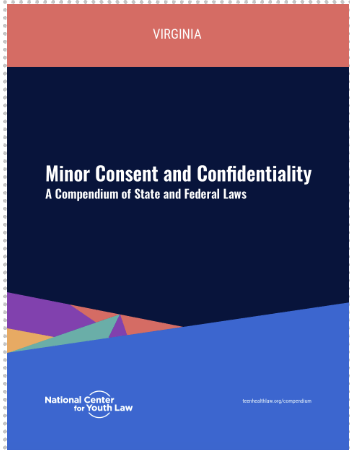Tips for Navigating Confidentiality with Patients Under 18
For the first decade or so of their lives, children attend pediatric appointments with a parent in the room. As they become a preteen, teen, and adolescent, they will begin taking more responsibility for their own healthcare. Questions will start being directed to them instead of their parent, and there are sensitive subjects related to health and safety that they may not want their parents present for. Even if their parents are not in the room, they may still be hesitant to disclose certain information.
This is because concerns about confidentiality can be a barrier for adolescents accessing healthcare services, with about a third of adolescents claiming they would not seek healthcare for sensitive health concerns if their parents could find out. When they are confident that their confidentiality will be respected, they are more likely to seek healthcare and disclose sensitive information about risky behaviors. For example, access to confidential healthcare is a significant predictor of comfort in adolescents discussing substance use with providers.
Confidentiality is Complicated!
Unfortunately, minor confidentiality is a complicated subject. 77% of physicians, including those in family medicine and pediatrics, report that they need additional training in confidentiality laws. As a result, one study demonstrated that 53% of surveyed physicians brought up the topic of confidentiality with any of their adolescent patients. When the physicians were asked about legal guidelines regarding confidentiality for a 15-year-old patient with a sexually transmitted disease, 31% were unsure how to manage the situation and 5% gave an incorrect response.
Confidentiality isn't just complicated for physicians—it's confusing for parents and adolescents, too. While the majority of parents acknowledge the benefits of adolescent confidentiality, many still report concerns about this privacy undermining their protective role. They may believe that their adolescents are comfortable disclosing sensitive information in front of them or want to be there to help if something negative is impacting their child's life.
Federal Provisions + State Protections = Confidentiality
There are two main protections in place for minor confidentiality – federal provisions and state protections. Here's what you need to know about each one!
- The Health Insurance Portability and Accountability Act (HIPAA): Allows parents/caregivers access to medical records for children under 18, with 3 exceptions:
-
- When a minor obtains care at the direction of a court
-
- When a parent agrees that a clinician and minor may have a confidential relationship
-
- When a minor has consented for care, and consent of a parent is not required for said care
- The Family Educational Right Privacy Act (FERPA): Allows parents access to a minor's educational records, which may contain health information.
Youth Law has prepared a guide to minor consent and confidentiality in Virginia, including an entire section on healthcare, which you can view below!
Tips for Navigating Confidentiality with Pediatric Patients
- The American Academy of Pediatrics recommends building routine one-on-one time with adolescents into well visits at eleven years old. Why? Because this conveys to your patient and their parent that this is a routine practice, and their privacy is important. This one-on-one time is a great opportunity to screen for mental health concerns and other sensitive subjects they may not want to discuss in front of their parents. (We love the HEEADSS assessment!)
- The Society for Adolescent Health and Medicine (SAHM) and the American Academy of Pediatrics (AAP) recommend encouraging adolescents to discuss health issues with their parents while also supporting their right to privacy. Remember: you should respect your patient's request for confidentiality when legally required or permitted.
- Remember that some adolescents do not have parental support. In some cases, the disclosure of sensitive information could put them at risk. Gently exploring reluctance can give you some insight into why an adolescent might be uncomfortable opening up to their parent.





